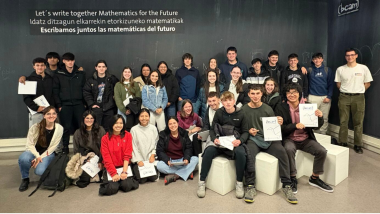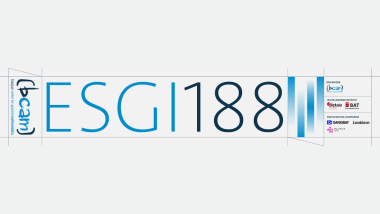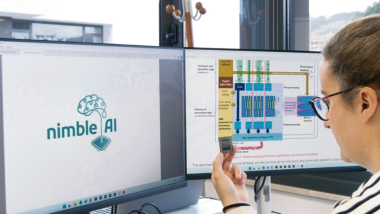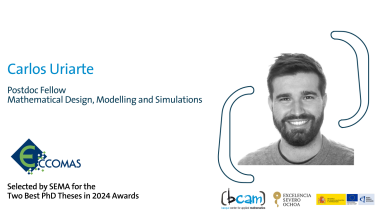BCAM, as a partner of INNOLAB Bilbao, visits Iberdrola's Global Smart Grids Innovation Hub with other collaborators from the platform
- This visit is part of "Innovation Hubs: Transforming the Future," an exclusive program for partners.
The open innovation platform INNOLAB Bilbao launches the "Innovation Hubs: Transformando el futuro" visits program exclusively for partners and collaborators of the platform. BCAM, as a member entity of INNOLAB Bilbao, participates in this program as part of the platform's strategy to stay at the forefront of technological and innovation advances. Therefore, BCAM attended the visit to Iberdrola's Global Smart Grids Innovation Hub, the first stop of this initiative.
"Innovation Hubs: Transformando el futuro" is a proposal that allows delving into the core of innovation, knowing some of the most relevant innovation hubs in Euskadi in different fields and sectors, their facilities, processes, as well as projects carried out. At the same time, the program aims to promote the identification of future synergies and collaborations. In addition to BCAM, representatives from various partners and collaborators that make up INNOLAB Bilbao, such as the Bilbao City Council, BBK Foundation, Mondragon Corporation, IMQ Group, University of Deusto, Sidenor, Inkolan, Tecnalia, Vicomtech, and El Correo, as well as from Iberdrola itself, attended this first of the guided tours.
We had the opportunity to firsthand experience every corner of the center and its activity. The value of the open innovation ecosystem as a fundamental lever on which Iberdrola relies and the challenges it poses, the richness of having a heterogeneous mix of collaborators, and the initiatives in talent development carried out from the Global Smart Grids Innovation Hub to have qualified professionals with digital skills demanded by Smart Grids were highlighted.
The day included visits to laboratories available in the center, including the Smart Cities laboratory focused on testing developments in the area of digitization and automation of the low-voltage network, the closest to the domestic customer, and the Digital Factory, a space dedicated to the use of new technologies such as robots or digital twins, in the usual processes of energy distribution. As has been observed and practiced throughout the visit, Innovation Hubs are spaces designed to foster collaboration, creativity, and innovation among different actors in the business, entrepreneurial, or academic ecosystem, among others. Spaces where the exchange of ideas, the development of joint projects, as well as research and the promotion of new technologies are encouraged.
Related news
About the center
About the center




